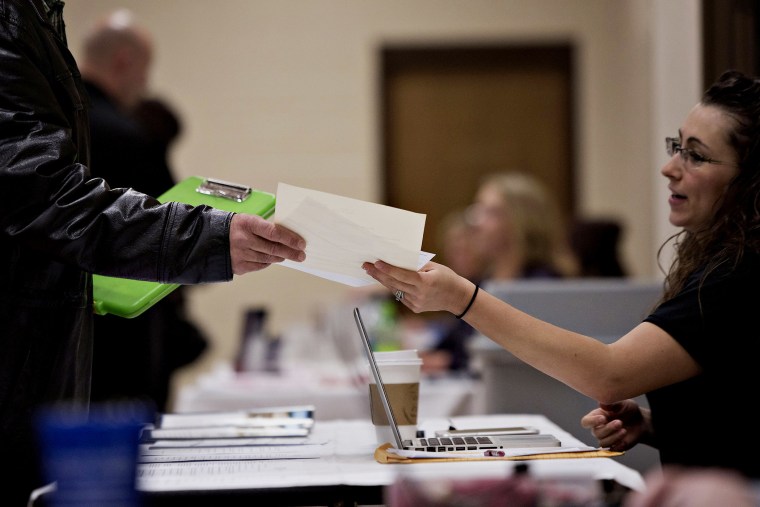Continuing a trend of solid job gains, the U.S. economy added 252,000 jobs in December, and the unemployment rate fell to 5.6%.
The job gains were stronger than analysts had expected, and the unemployment rate is now 0.2% lower than in the previous month. Overall, 2014 marked the strongest year of job gains since 1999, adding 2.95 million new jobs total and an average monthly gain of 246,000.
"Although job gains did not match the tremendous November increase, they were nonetheless strong and indicative of momentum in the labor market that is expected to continue in 2015," said Sophia Koropeckyj, senior economist and managing director for Moody's Analytics. The firm expects monthly job gains to pick up and exceed 300,000 by the end of the year.
RELATED: 2015: a turning point for the economy?
But December's report also pointed to the underlying weaknesses of the economic recovery: stagnant wages and low participation in the labor force. Average wages fell 0.2% in December, after seeing a 0.4% rise the previous month, driving down 2014's overall wage gains to just 1.7%.
The labor force participation fell slightly to 62.7% in December, showing little change over the course of 2014. Though it's partly being driven by an aging workforce and rising college enrollment, the shrinking number of those working or looking for work has raised concerns about the long-term health of the U.S. economy. In December, "while retirements explain some of the decline, participation fell for nearly every age group," said Koropeckyj.
In December, jobs were added across a broad range of industries, including professional and business services, health care, manufacturing, construction, and food services. The report showed that November's blockbuster jobs numbers were even stronger than initially reported, revising the gains upwards from 321,000 to 353,000. October's jobs numbers were also revised upward from 243,000 to 261,000.
December's report also raises questions about the Federal Reserve's plans to raise interest rates in the upcoming months. While the pickup in job growth suggests that the economy is heating up, stagnant wages could help counter fears of inflationary pressures.
"The fact is that the economy is not growing enough for workers to feel the effects in their paychecks and not enough for the Federal Reserve to slow the economy down out of fear of upcoming inflationary pressure," warns Elise Gould of the Economic Policy Institute. "If the Fed acts too soon, it will slow labor share’s recovery and come at a cost to Americans’ living standards."
RELATED: How a brighter economy changes the GOP playbook
After taking credit for November's outsized job gains, Republicans swiftly attacked the weaknesses in December's report.
"We’re glad to see jobs created, but Republicans believe we can and must do better than this—especially when we see so many people leaving the workforce and earnings declining,” said Republican National Committee chairman Reince Priebus. He added: “Apparently President Obama disagrees. Mediocrity must be good enough for him because he’s already promising to veto bipartisan legislation that would create jobs and put people back to work."
The White House, by contrast, played up the "important milestones in 2014" for the economy and tried to put a positive spin on stagnant wages. "Although nominal wages fell in December, inflation-adjusted wages have generally been rising, and job growth has picked up in sectors that traditionally provide good, middle-class jobs," Jason Furman, who chairs the president's Council of Economic Advisers, said in a statement.
